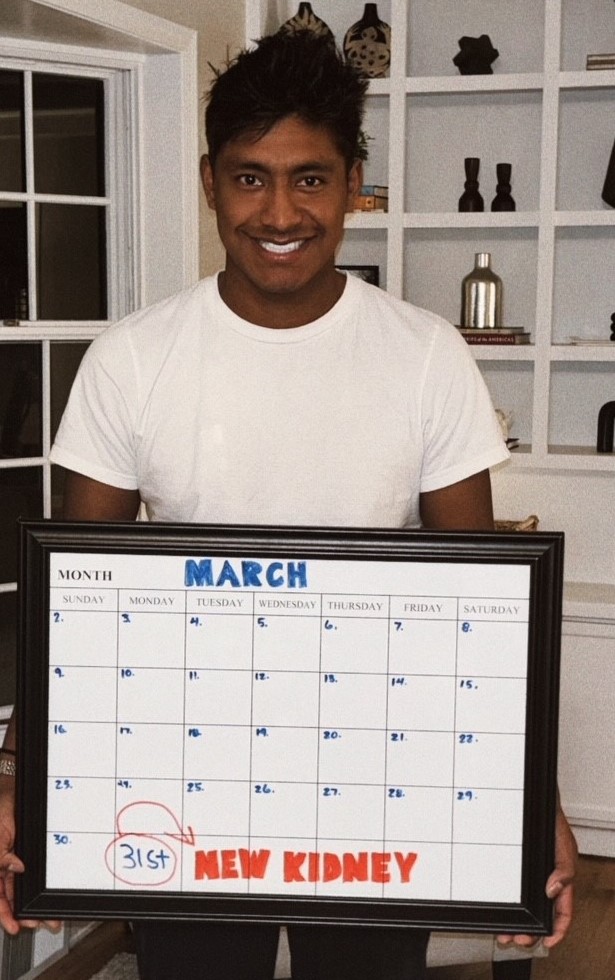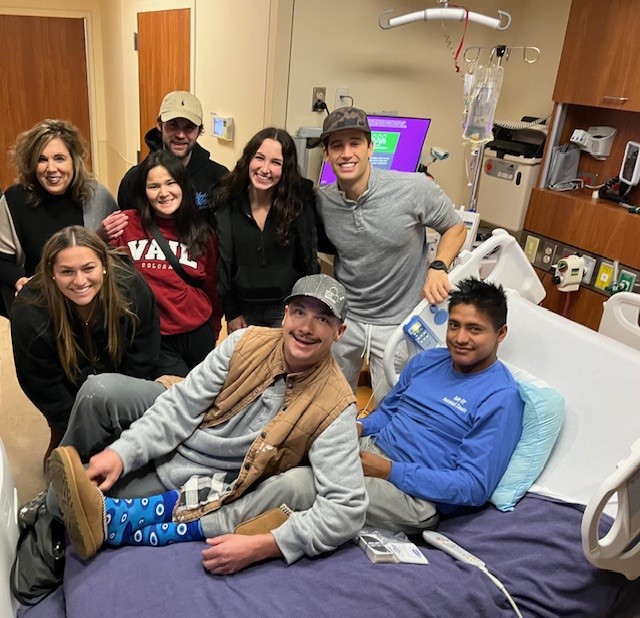A Second Chance at Life
April 1, 2025April is National Donate Life Month, and it’s a time to consider the powerful choice of becoming an organ donor. Whether registering, creating an advance directive, or becoming a live donor for someone in need, organ donation gives a second chance at life.
At age 22, Evan Zuiderveen was a typical young adult who loved pickleball and spending time with loved ones. However, in October 2023, he suddenly became short of breath after simple activities.
"I was having trouble breathing. And then when I was, you know, maybe going up a flight of stairs, it was just a little bit hard to breathe. I didn't really think much of it," Evan, now 24 years old, recalled. After three days of shortness of breath, he visited urgent care. Upon arriving, the medical team sent him to the emergency department, where he underwent numerous tests and was eventually diagnosed with kidney failure.
His diagnosis required extensive dialysis: four-hour sessions three days a week. In addition to the time and energy dialysis takes, Evan has changed his lifestyle for his health and safety. “I can only eat specific foods. I can only drink a certain amount of liquid a day until it really affects my body,” he said.
A kidney transplant was Evan’s goal and would allow him to live more of a normal life. He aims to travel, continue an active lifestyle, eat and drink on his terms, and live without the constraints of his dialysis schedule.

Evan became a Trinity Health Grand Rapids Kidney Transplant Center patient, working with the dedicated, multidisciplinary team to learn more about managing kidney disease, the living donor program, and the National Kidney Registry (NKR).
Jill Wagner, transplant services liaison at the Kidney Transplant Center, highlighted that there are currently more than 2,000 patients in Michigan awaiting a life-saving organ, with 85% of those awaiting a kidney. “These patients need an organ to survive. So, if they don't get a transplant, they're using dialysis to survive, she said.
The Kidney Transplant Center in Grand Rapids is the only adult kidney transplant center in Michigan and has completed more than 3,000 kidney transplants over the past 50 years. The program has also seen continued growth over these last five decades, completing 90 to 100 kidney transplants annually. The Center is the only adult kidney transplant program in the state to partner with the National Kidney Registry, which offers more options for hard-to-match patients and donors.
Kidney transplants are made possible through organ donation. There are two types of kidney transplants: living donor and deceased donor. Most people are born with two kidneys, while one is enough to live normally. With living kidney donation, a healthy person agrees to have surgery to remove one of their kidneys, which will be transplanted into the patient. For the recipient, a living kidney donation is the greatest chance to live a long, healthy life. Kidneys from living donors typically last 15 to 20 years.
Evan’s girlfriend, Jasmine Dianpour, initiated a social media campaign to raise awareness and connect with potential donors. The efforts paid off as a donor saw Evan’s Facebook page and found out they were a match for Evan. In March 2025, Evan got the news that he had a live donor and would receive a new kidney and a second chance at life later that month.
“It was really awesome. You know, I was very, very excited. And I just kind of thought to myself that all these dialysis sessions are going to come to an end eventually,” Evan shared. "I'm just very grateful that someone was able to step up and able to donate and change my life."
Fox17 covered Evan’s story.
Learn more about the Trinity Health Grand Rapids Kidney Transplant Center in this video.
Get information about becoming a living kidney donor through the Trinity Health Grand Rapids Kidney Transplant Center and Shaping Tomorrow Today Advance Directives and Organ Donation. More information about organ donation and registering as an organ donor is also available through Gift of Life Michigan.





